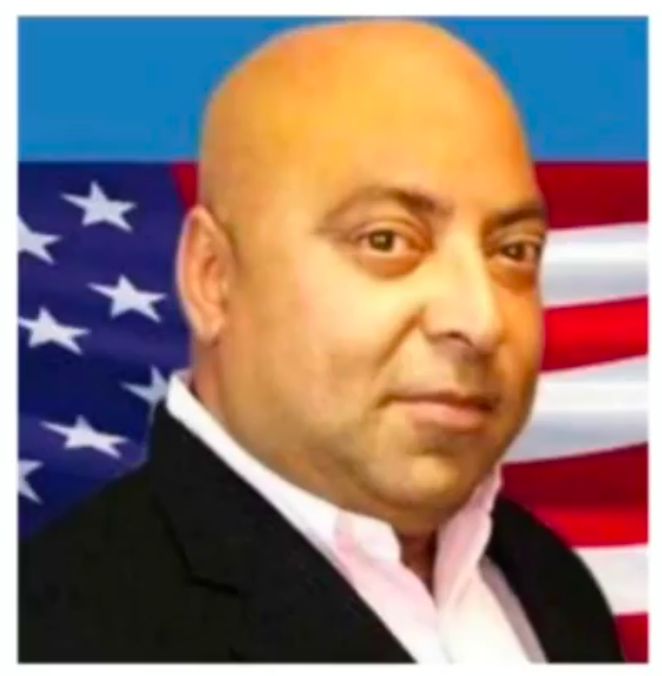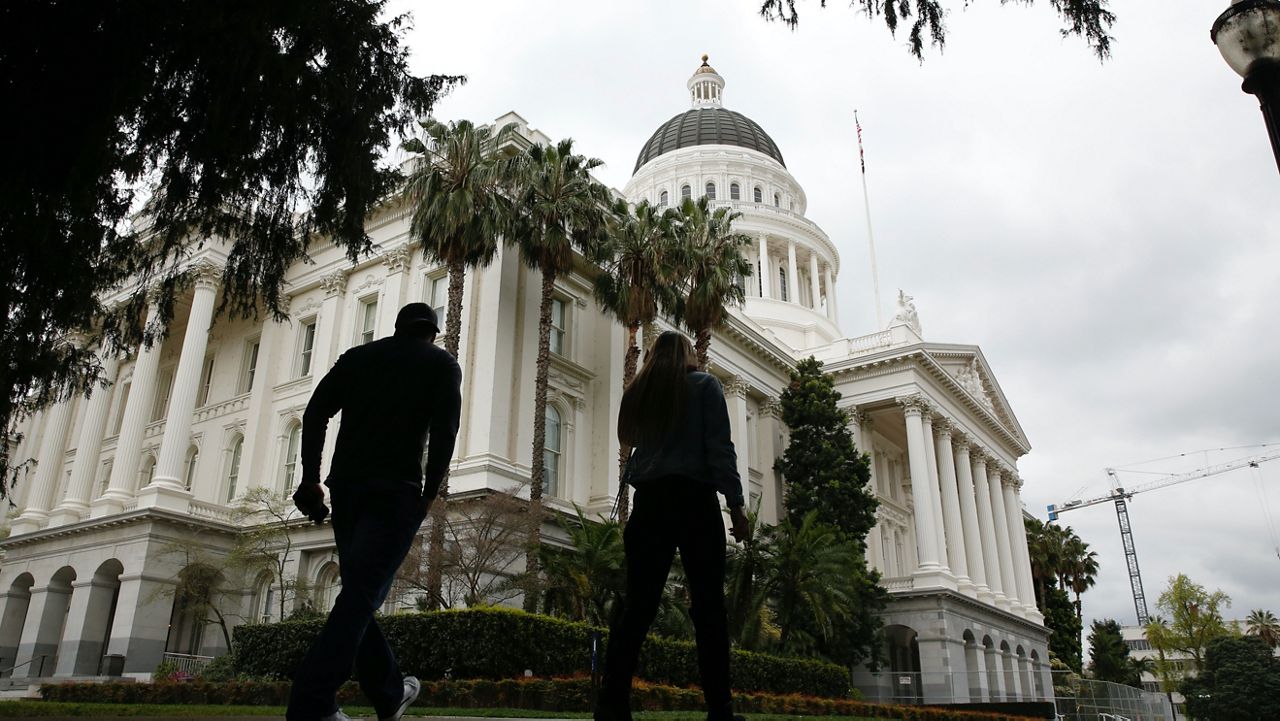LOS ANGELES — The 2021 California gubernatorial recall election, only the second to qualify in the state’s long history of attempted recalls, came about amid one of the most unusual years.
The election will either be hugely disruptive or an insignificant blip in the state’s history. Either way, a replacement to Gov. Gavin Newsom would have to run for reelection in 2022 almost immediately.
What You Need To Know
- The election will either be hugely disruptive or a blip in the state’s history
- This year’s ballot includes longtime electoral hopefuls, a handful of multimillionaires and quite a few celebrities
- They’re the candidates next door who believe, like Buster Douglas against Mike Tyson, they’ve got a chance to pull off a historical political upset
- Anyone running for governor in this year’s race was required to pay $4,194.94, submit a minimum of 7,000 signatures or some combination thereof — the dollar value of each signature is approximately 60 cents
So only fitting that its slate of candidates jockeying to replace Newsom is, similarly, an unusual bunch.
As with the previous gubernatorial recall, when Gray Davis was unseated and replaced by Arnold Schwarzenegger in 2003, this year’s ballot includes longtime electoral hopefuls, a handful of multimillionaires, and quite a few celebrities with (more or less serious) political aspirations.
But more than half of the ballot is a potpourri of relative political neophytes. These folks have little-to-no statewide name recognition and have decided to start by aiming at California’s highest office: teachers, entertainers, business owners, pastors, tour guides.
They’re the candidates next door who believe that, like Buster Douglas against Mike Tyson, they’ve got a chance to pull off a historical political upset.
“If anything, that’s my edge. We only get weird-ass celebrities…washed up footnotes of popular culture, or people like Newsom, born into politics,” said Adam Papagan, an Angeleno running with no party preference. “I wanted my campaign to be like, if someone asked, ‘What would it be like if I ran for governor?’ I want people in my shoes.”
A common thread among the candidates interviewed for this story is frustration.
From the left, it’s frustration that the liberal policies of California aren’t going far enough to take care of all citizens. From the right, there’s a belief state policies interfere too much with the lives of residents — especially their businesses. Most of them feel that there are corrupting influences in the state that draw attention from serving Californians.
For some of the affirmed Democratic candidates, the goal isn’t necessarily to replace Newsom wholesale but to be the emergency release valve should the electorate move to unseat him.
“I would say to vote ‘no’ on the recall…but if he does get recalled, you might as well vote for me,” said college student John Drake of Ventura.
At 20 years old, Drake is the youngest person in the field by nearly a decade.
His policies lean to the left, focusing on affordable health care, education and housing — a platform he developed after “surviving the alt-right pipeline” as a Donald Trump-supporting 15-year-old. (His family, he said, instilled evangelical conservative values, though he grew to reject Trump and his upbringing between 2016 and 2020.)
His small but passionate social media presence reflects the irreverence of his generation: should he win the recall election, he wouldn’t just be the state’s youngest-ever governor but (presumably) its first “catboy” governor — illustrated portraits of Drake sometimes include cat ears poking through his blond hair.
His tweets can be suggestive, politically pointed, and probably offensive to folks without the jaundiced eye of someone raised on the internet — occasionally, all at once. That’s not to say that he’s unserious: just that his messages are for a very specific, meme-friendly audience.
“The mainstream media has basically picked the candidates…people haven’t liked them, but they haven’t heard of other people,” Drake said. “My base tends to be younger and more forgiving of slip-ups. They like the fact that I’m a young LGBT person, bringing a voice to issues that multimillionaires from Sacramento, San Diego and LA are not bringing to the forefront.”
He believes that his candidacy offers a voice for the young Californians who are left to feel the long-term effects of decisions made by the politicians from older generations. And if he fails this time, Drake plans to keep running; he’s already charting out a path to the 2021 Democratic nomination and considering runs for other offices in the near future, once he finishes his degree.
Jackie McGowan, a Democrat from Napa, similarly isn’t calling for folks to recall Newsom. But she’s looking to take advantage of what she calls a “political black swan event” — this election’s perfect storm that could allow a candidate to win the governorship with what she believes may be as little as “13 to 20% of the vote.”
McGowan, like Drake, is frustrated with the California Democratic party line to skip naming a Newsom replacement on the ballot. “How un-American is it to tell people not to vote?” she said.
Like many of the folks on the ballot, McGowan said that she’s tired of corruption within the halls of government that prevents work done on behalf of the people. She’s a cannabis policy expert by trade, an avowed “local lobbyist” who said she’s expanded her lens with the goal of getting corrupting influences (like lobbyists) out of the state capital.
“I only want to be governor for one year,” she said. “I want to disrupt the system and on day one, say hey lobbyists, you can go home for the year, you’re not getting into my office.”
(When asked about that contradiction between her day job and wanting to eliminate lobbying at the state capital, McGowan said that her job was to work on behalf of small business, not larger corporate influencers.)
And though McGowan said that she’s considering this to be a one-year project, she’s not opposed to running again. The experience of running for office and learning about the state’s myriad issues — from housing to wildfires to criminal justice reform — has changed her.
“I can’t tell you how challenging, disruptive, emotional, exhausting all of this has been. But there’s been so much magic along the way. I wouldn’t change any of it,” McGowan said when asked if she would take another swing at political office. “A pickle can’t go back to being a cucumber.”
Grievance plays a significant part in some of these candidacies, even if it takes some digging to get there.
Kevin Kaul, of Long Beach, is registered as No Party Preference on this year’s ballot, and it’s a bit difficult to make sense of why he’s running at first glance: his website doesn’t clearly note his platform, and he doesn’t have a statement included with the state’s official voter’s guide. On the phone, the first thing he promised was to bring “$10 trillion of new business to California.”

As the founder of a “global business forum,” he believes he can cause the state’s relationship with India’s growing economy to boom. He said he would encourage the state’s universities to institute mandatory crash courses in entrepreneurship, and he believes that juicing the economy is the cure to all the state’s ills.
“Once the new business comes in, all of the other issues are minor issues to be fixed,” Kaul said.
But when pushed, he admits that Newsom’s response to the pandemic — and very specifically, last year’s summer holidays — is what spurred him to run.
“Last year, July 4, when he shut down California, that pissed me off,” Kaul said. “He’s totally un-American, he’s not a patriotic American.”
Kaul took issue with the closures through the day, aggrieved that Newsom “shut down the state” even though protests were not shut down in previous weeks — though he did not note that protests across the state carried on even during the Fourth of July holiday. (He also added that the state shouldn’t have been shut down, saying that COVID is “just a flu.”)
“We immigrants are more loyal Americans, we’re more patriotic to our country,” Kaul, an Indian immigrant, said. Near the end of his interview with Spectrum News 1, he urged voters to be American, to vote for him, leading to one last question: does he think it’s un-American to vote for other candidates? Kaul responded with an emphatic "yes."
When asked why he would choose to inflict the stress of a political race on himself, Fountain Valley aircraft mechanic David Hillberg said that his profession has a madness of its own.
“Politics is just an offshoot,” he added. “Basically, I got tired of the BS,” Hillberg said — specifically, the walled gardens of politics, keeping the average person from jumping into the political fray.
“I’ll talk to my assemblyman, to my congressional people, and get no reply. It’s all, ‘we’re getting you stuff,’ but I don’t want stuff, I want freedoms. I don’t want a high cost of living. I’m fed up with the communist crap,” he said.

Hillberg vehemently disagrees with the state’s response to the pandemic, at one point blaming migrants for spreading COVID (an unsubstantiated rumor that has been repeatedly spread by conservative-leaning figures), and downplaying the risks of the disease.
His frustration is palpable; the politicians representing him, he said, are “self-serving bastards” micromanaging business with policies he believes are unconstitutional.
“People are not supposed to be managed by government — except if they violate the law — but there should hardly be any involvement with a person’s personal life,” Hillberg said.
His goal, not unlike McGowan, is to get corruption out of the state, starting with Sacramento. Should his similarly conservative opponents win, “God bless ‘em,” he said. “But will they go to the limit? Will they go into the legislature and say guys, you’ve got three options: resign, reform, or be thrown in jail?”
Los Angeles candidate Adam Papagan isn’t so hardline — in part because he’s become more cynical and because he’s becoming realistic (or perhaps fatalistic) after facing the realities of this campaign.
He joined the field of candidates largely because he wanted to see what it would take for the average person to run for governor. What he’s learned is that, though the requirements for governorship make the job available to millions of Californians in theory, the system feels like it has placed great walls around anyone interested in competing for the job in practice.
“This is one of the hardest things I’ve ever done,” Papagan said. “I thought that, in America, anyone could run for office if they qualified. Technically, I figured it out, but…there’s so much driving back and forth to Norwalk, dealing with tax returns, the registrar/recorder is only open on weekdays, so if you can’t take the day off, you can’t get down there. So no, not everyone can run.”
He’s familiarized himself with paperwork deadlines, with Fair Political Practice Commission campaign finance forms, with the fees involved in printing a ballot statement — and, of course, the original filing fee.
Anyone running for governor in this year’s race was required to pay $4,194.94, submit a minimum of 7,000 signatures, or some combination thereof — the dollar value of each signature is approximately 60 cents. “I got in 80 signatures…took about 40 bucks off of my bill from the Secretary of State,” Papagan said. (Nearly every candidate interviewed for this story paid well more than half of the filing fee.)
“It’s not covert. These are the things we do to keep people out. It’s enshrined in our laws: this is how it is, and how it’s always going to be,” Papagan said. “Unless you can somehow navigate this and then, through the goodness of your heart, you want to change things.”
But that, he said, will be difficult — the existing systems are too deeply entrenched, and might corrupt even the most righteous candidate to win the governorship, Papagan said.
“The point of my campaign is that it’s us versus the system. People get lost in the culture wary, the get lost in the theatrics and the game of it all…but at the end of the day, there are dire consequences to all of this,” Papagan said. “The only thing that will change politics is structural change…if people are aware that we don’t want elites running everything, maybe they won’t anymore.”



